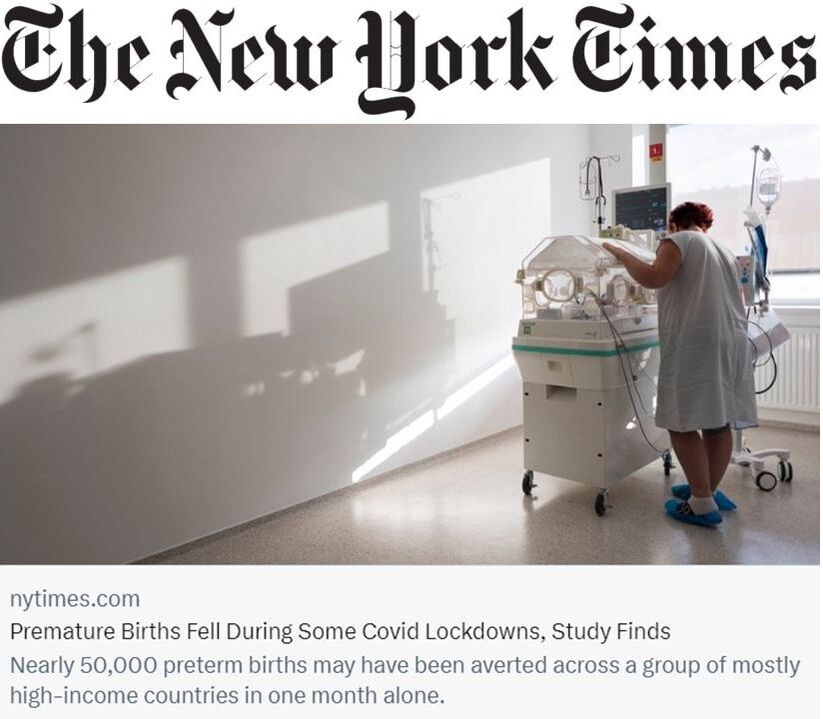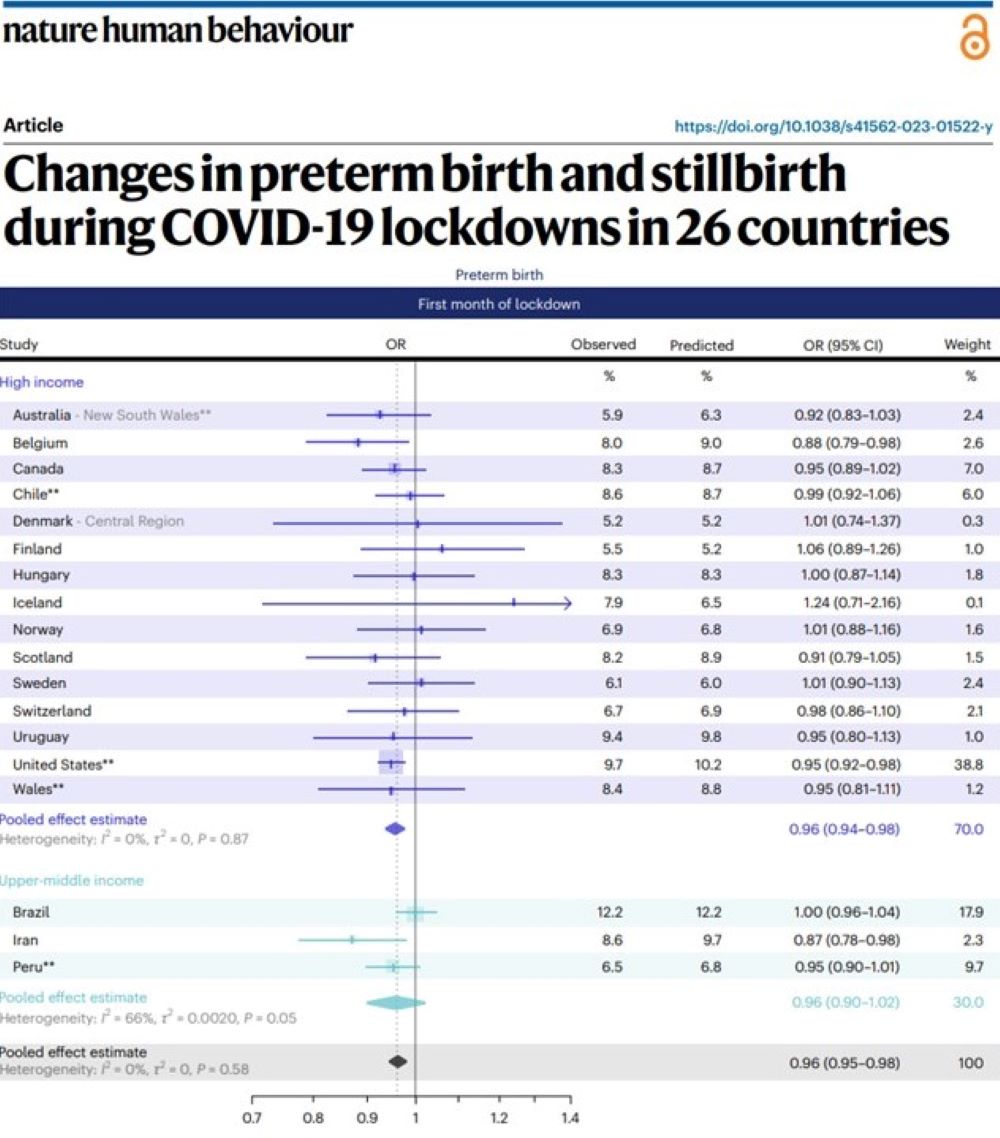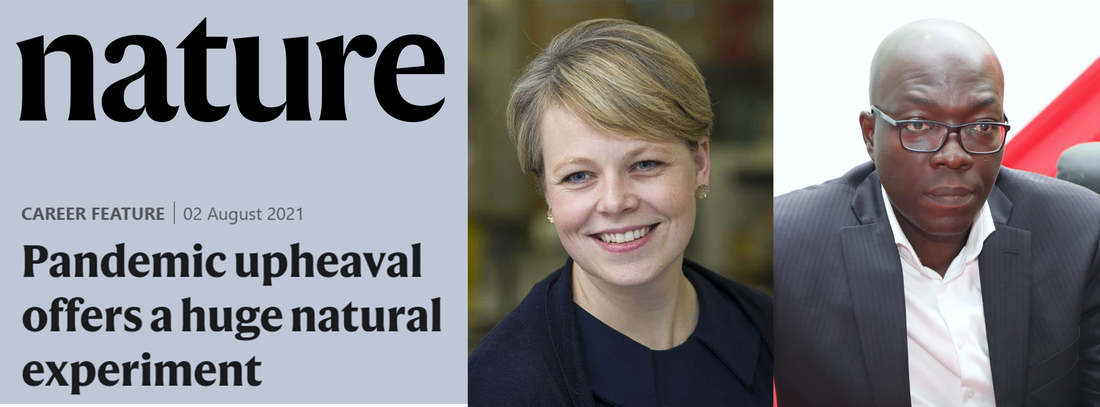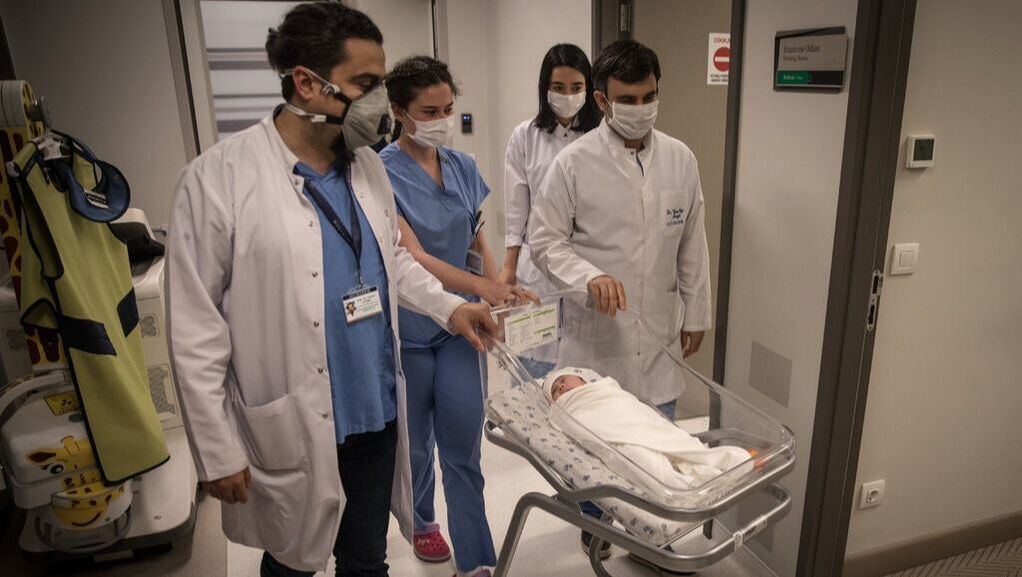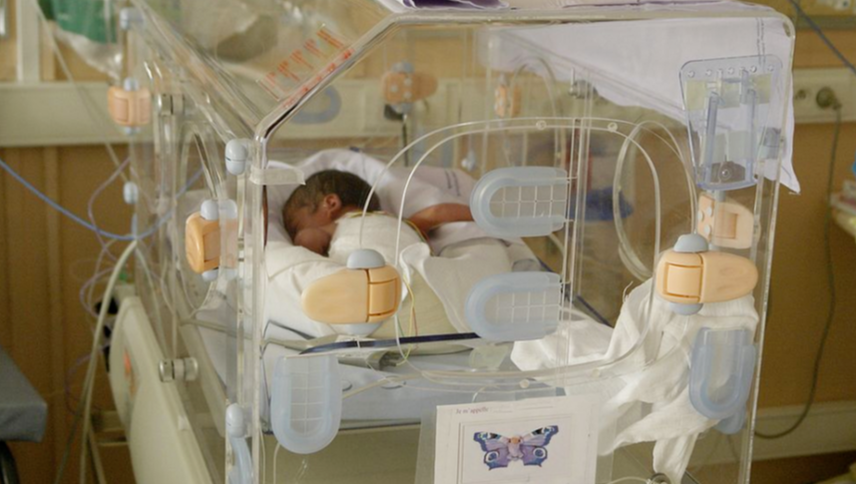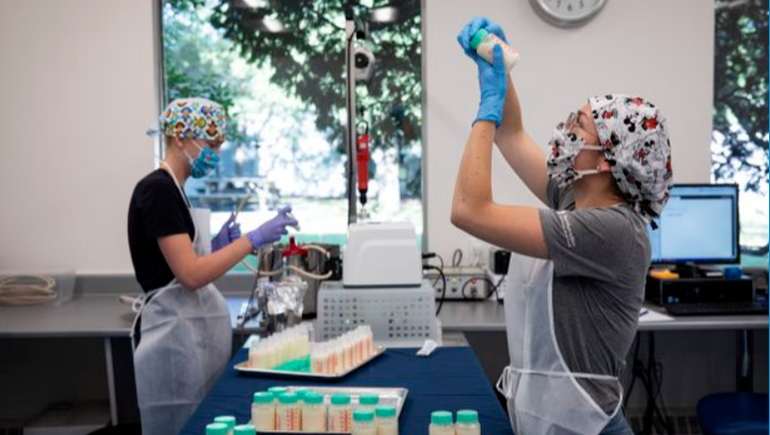|
Results of the international Perinatal Outcomes in the Pandemic (iPOP) Study, published in Nature Human Behaviour this month, received worldwide media coverage in over 150 outlets reaching more than 395 million people. These include the New York Times (USA), Daily Mail (UK), Canberra Times (Australia), City News (Canada), La Nueva Espana (Spain), among many others. As welll, Tweetorials by iPOP co-leads @MeghanAzad and Merilee @mbrockwa) made over 20,000 impressions on Twitter.
The iPOP Study results were published in Nature Human Behaviour this week. With over 100 co-authors, the iPOP Study investigated associations between early COVID-19 pandemic response measures ('lockdowns') and preterm birth rates, using harmonized data from 52 million births in 26 countries. Read the full article [PDF] and check out Dr. Azad's [Tweetorial] on Twitter.
Drs. Stock and Amegah were interviewed in a Nature Career Feature for their insights on how the iPOP Study is leveraging the pandemic to understand preterm birth and stillbirth. In the article, titled "Pandemic upheaval offers a huge natural experiment", Dr. Stock says, "We can’t underplay the horror of the pandemic... but I think we’ve got to learn as much as we can from this.” Read the full article here.
Dr. Been, iPOP Investigator, in The New York Times: Did Lockdowns Lower Premature Births?10/15/2020
Dr. Been, iPOP Investigator, comments on a study he led that was one of the founding pieces of evidence for starting the iPOP Study. Read more in The New York Times article "Did Lockdowns Lower Premature Births? A New Study Adds Evidence."
Photo: Chris Mcgrath/Getty Images Dr. Stock, iPOP co-Lead, comments on The Times article Coronavirus in Scotland: Expectant mothers ‘should seek help if worried’ as stillbirths rise.
Photo: Alamy Dr. Azad, iPOP co-Lead, talks about the 3 working theories the iPOP Study aims to analyse to help understand the surprising drop in premature births during the pandemic to the Toronto Times. "If we can figure out any way to reduce the number of preterm births, this will be important research and could have very meaningful outcomes for the health of infants worldwide," Dr. Azad commented. Read more here.
Photo: Yann Forget / Wikimedia Commons Dr. Brockway, iPOP co-Lead, was invited to talk with Simi of Global News Radio to talk about how the iPOP Study aims to understand the bizarre phenomenon of why "Fewer babies are being born prematurely during the pandemic."
Drs. Azad & Brockway, iPOP co-Leads, and Drs. Alshaikh & Shah, Collaborators, comment on their work to understand why "Fewer babies are being born premature during COVID-19" in CTV News. Regarding the iPOP Study, Dr. Brockway says, “We are hoping to have the high level analysis, to essentially answer this question and describe preterm birth rates internationally...”.
Photo: CTV Drs. Azad, Brockway and Burgner, iPOP Study co-Leads, and were recognized for their efforts to startup the iPOP Study to help answer why "Canadian hospitals saw a sudden drop in premature births during the pandemic". In the Globe & Mail article, Dr. Azad said “It’s a natural experiment that we’ve never experienced before." iPOP Collaborators Dr. Alshaikh and Shah were also featured.
Photo: Todd Korol/The Globe & Mail |
iPOP Study Media CoverageArchives
March 2023
|

